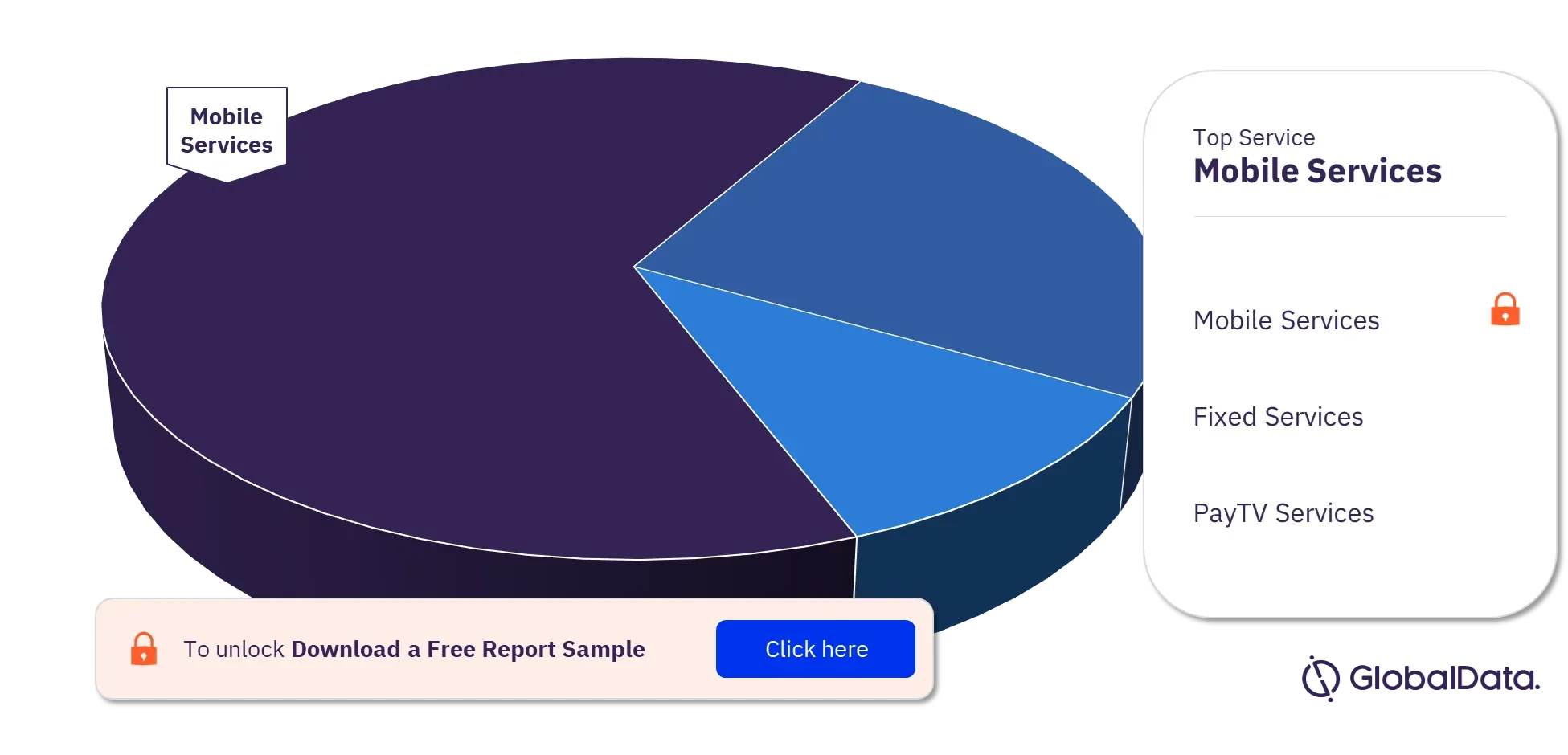In recent weeks, Canadian telecom pricing changes have taken center stage, impacting consumers across the country. With a wave of price increases, many Canadians are reevaluating their mobile plans as companies like Freedom Mobile and Fido adjust their offerings. Notably, Freedom Mobile has launched new, pricier plans that include 5G+ capabilities, while Fido has increased its rates by $5 per month after ending special Lunar New Year deals. These fluctuations highlight the ongoing shifts within the Canadian telecom landscape, including Bell’s competitive pricing adjustments and Rogers’ innovative App TV plan. As the Canadian Radio-television and Telecommunications Commission (CRTC) continues to monitor these developments, consumers are left navigating the latest changes in mobile plans Canada and their implications for everyday use.
The recent shifts in the pricing strategies of telecommunications companies in Canada have sparked significant discussion among consumers and industry analysts alike. With multiple providers adjusting their mobile service offerings, many are left questioning the value of their current contracts in light of these telecom price increases. As companies like Telus and Virgin Plus raise their plan prices, the landscape of mobile connectivity in Canada is evolving rapidly. This ongoing evolution not only affects consumer choice but also raises important questions about competition and regulatory oversight in the sector. As the CRTC telecom update unfolds, Canadian residents must stay informed about their options for 5G plans Canada and beyond.
Recent Trends in Canadian Telecom Pricing Changes
In recent weeks, Canadian telecom companies have made headlines with a series of price changes, predominantly consisting of increases across various mobile plans. Freedom Mobile, for instance, has launched new plans that not only feature 5G+ capabilities but also come with higher price tags. This trend of telecom price increases reflects a broader industry shift, where providers are adjusting their rates in response to the rising costs of infrastructure and service enhancements. As consumers seek the best mobile plans in Canada, these changes have sparked discussions about value versus cost in the competitive telecom market.
The pricing landscape in Canada is rapidly evolving, with companies like Fido and Virgin Plus following suit by raising their plan prices by $5 per month. Such adjustments may not only impact consumer choices but also influence perceptions of brand loyalty and satisfaction. The recent introduction of the ‘App TV’ plan by Rogers, which bundles live TV and ad-supported streaming services, is an example of how telecom providers are attempting to add value despite the rising costs. As the CRTC telecom updates continue to emerge, it remains essential for consumers to stay informed about these pricing changes and their implications.
Mobile Plans in Canada: What to Expect in 2024
As we head into 2024, the mobile plans landscape in Canada is poised for significant changes. Consumers can expect ongoing developments from major players like Bell, Telus, and Rogers, who are continuously refining their offerings. For example, Bell’s recent price adjustments have made its plans slightly cheaper, albeit with reduced data allowances. This strategy could attract budget-conscious consumers who prioritize cost over data volume. Additionally, Telus’s introduction of the $88/188GB Lunar New Year plan demonstrates an effort to provide competitive options amidst rising prices.
On the flip side, the consistent price increases from providers like Fido and Koodo may lead consumers to reassess their current mobile plans. The reinstatement of bonus data by Fido, albeit under less favorable conditions, indicates a shift in how telecom companies are structuring their deals. As competition heats up, mobile plans in Canada are likely to become even more complex, necessitating that consumers remain vigilant and proactive in evaluating their options. The CRTC’s involvement in regulating pricing practices will be crucial in ensuring fair competition and protecting consumer interests.
Exploring 5G Plans in Canada: Features and Pricing
The rollout of 5G technology has revolutionized the mobile experience in Canada, providing users with faster speeds and more reliable connections. Telecom providers are eager to capitalize on this advancement by introducing new 5G plans that cater to consumers’ increasing demands for data and speed. Freedom Mobile’s recent launch of 5G+ plans exemplifies the market’s response to the growing popularity of high-speed internet access. As more Canadians rely on mobile data for streaming, gaming, and remote work, the significance of robust 5G plans cannot be overstated.
However, with the introduction of these advanced mobile plans comes a corresponding rise in pricing, further contributing to the trend of telecom price increases. Consumers must weigh the benefits of enhanced service against the financial implications of subscribing to a 5G plan. As companies like Rogers, Bell, and Telus continue to innovate and compete for market share, it will be interesting to see how they balance pricing with features and customer satisfaction. Additionally, the CRTC’s oversight will play a vital role in ensuring that consumers are not left at a disadvantage as providers adjust their pricing structures.
Infrastructure Developments in Canadian Telecom
The success of telecom companies in Canada relies heavily on robust infrastructure, and recent reports from Ookla have highlighted Bell’s dominance in mobile and fibre networks. This recognition underscores the importance of investing in infrastructure to enhance service quality and customer satisfaction. As companies strive to improve their network capabilities, consumers can expect more reliable connections and better overall performance from their telecom providers. The advancements in infrastructure not only benefit existing customers but also attract new users seeking high-quality mobile services.
Moreover, the ongoing investment in infrastructure is essential for supporting the increasing demand for data, particularly with the rise of 5G technology. Providers that prioritize network enhancements will likely find themselves at an advantage in the competitive landscape. As we continue to see significant changes in Canadian telecom, the focus on infrastructure will be crucial in shaping the future of mobile plans and services. The balance between pricing, service quality, and infrastructure investment will be key in determining how companies can meet consumer expectations.
The Impact of CRTC Telecom Updates on Consumers
The Canadian Radio-television and Telecommunications Commission (CRTC) plays a pivotal role in shaping the telecom landscape, and its recent updates have significant implications for consumers. One area of focus has been the investigation into the costs associated with phone calls for inmates, which highlights the need for fair pricing structures across all demographics. As the CRTC continues to scrutinize pricing practices, consumers can expect more transparency and potentially more equitable pricing strategies from telecom providers.
Additionally, the CRTC’s efforts to regulate telecom pricing will affect how companies adjust their plans and deals. With ongoing scrutiny, providers may be encouraged to offer more competitive pricing while maintaining high-quality service. This regulatory oversight is crucial in an environment where telecom price increases have become the norm, ensuring that consumers are not unfairly burdened by rising costs. Ultimately, the CRTC’s involvement will help foster a more balanced telecom market that benefits all Canadians.
Financial Performance of Major Telecom Providers
The financial landscape for Canadian telecom companies has shown resilience, with Rogers exceeding financial expectations in Q4 2024. This achievement not only reflects the company’s effective strategy amidst rising telecom prices but also signals a strong demand for mobile services. As telecom providers navigate a competitive market, their financial performance will significantly influence future pricing strategies and service offerings. Investors and consumers alike will be watching closely to see how these financial results translate into changes in pricing and plan availability.
Moreover, robust financial performance enables telecom companies to invest in infrastructure, technology, and customer service enhancements. As they report positive earnings, companies like Bell, Telus, and Rogers are more likely to allocate resources toward improving network capabilities and expanding service coverage. This investment is crucial for meeting the increasing data demands of consumers, especially as more Canadians adopt 5G technology and seek higher-quality mobile plans. The intersection of financial health and consumer service will be a defining factor in the future of telecom in Canada.
Consumer Reactions to Telecom Price Increases
As telecom companies in Canada implement price increases, consumer reactions have ranged from frustration to resignation. Many customers feel the pinch of rising costs, particularly those on fixed incomes or with tight budgets. The recent $5 price hike from Fido and Koodo, for instance, has led many consumers to reevaluate their current mobile plans and consider switching providers. This trend emphasizes the importance of being informed about available options and understanding the value proposition of different plans.
On the other hand, some consumers acknowledge that increased costs can lead to improved service quality and enhanced features. The introduction of new 5G plans and bundled services, such as Rogers’ ‘App TV’ plan, may entice users to accept higher prices in exchange for better offerings. As the market continues to evolve, it will be interesting to see how telecom providers respond to consumer feedback and whether they can balance pricing with the demand for high-quality service. Engaging with customers and addressing their concerns will be crucial for maintaining brand loyalty in this competitive landscape.
The Future of Mobile Plans in Canada
Looking ahead, the future of mobile plans in Canada is likely to be characterized by a blend of innovation and pricing challenges. As telecom providers roll out advanced technologies like 5G, they will need to find ways to structure their pricing to remain competitive while also justifying increased costs. With consumer demand for more data and better service on the rise, companies must navigate the delicate balance between enhancing service offerings and keeping prices manageable.
Additionally, the regulatory environment will play a significant role in shaping the future of mobile plans. The CRTC’s ongoing oversight will ensure that consumers have access to fair pricing and competitive options. As telecom companies adjust their strategies in response to regulatory guidance and consumer expectations, the landscape will continue to evolve. Ultimately, staying informed about these developments will empower consumers to make better choices in a rapidly changing market.
Navigating the Canadian Telecom Landscape
Navigating the Canadian telecom landscape has become increasingly complex due to frequent pricing changes and the introduction of new plans. Consumers must now be more vigilant than ever in comparing options from various providers to find the best deals that suit their needs. The recent trend of telecom price increases has made it imperative for users to understand the nuances of each plan, including data limits, contract terms, and additional fees.
Moreover, as telecom companies adapt to consumer demands and regulatory pressures, it is essential for users to remain proactive in their telecom choices. Keeping an eye on the latest news, such as the CRTC telecom updates, can provide valuable insights into the best available options. By staying informed and engaged, consumers can navigate the changing telecom landscape effectively and secure the most favorable mobile plans available in Canada.
Frequently Asked Questions
What recent Canadian telecom pricing changes should I be aware of?
Recent Canadian telecom pricing changes have included notable price increases from several providers. Freedom Mobile has launched new, pricier plans that feature 5G+ and increased data allowances. Fido has raised its prices by $5/month after ending special deals, while Virgin Plus and Koodo have matched this price increase. Bell has slightly reduced prices on mobile plans, although these come with less data. Public Mobile has also adjusted its prices to be competitive with Freedom Mobile.
How do the recent telecom price increases affect mobile plans in Canada?
The recent telecom price increases have led to higher costs for many mobile plans in Canada. Providers like Fido, Virgin Plus, and Koodo have raised their plan prices by $5 per month, which affects both new and existing customers. Consumers may need to reassess their options as they might find better deals or more competitive pricing with other carriers in light of these changes.
What is the latest news on mobile plans in Canada?
The latest news on mobile plans in Canada highlights significant price changes across various telecom providers. Freedom Mobile has launched new 5G+ plans, while Fido has increased prices on its plans after ending special promotions. Bell has adjusted its pricing, offering slightly cheaper plans with reduced data, and Telus has introduced a competitive $88/188GB plan. These changes reflect a broader trend of price adjustments within the Canadian telecom market.
Are there any new 5G plans available in Canada?
Yes, several providers have recently introduced new 5G plans in Canada. Freedom Mobile’s new plans include 5G+ capabilities with increased data options. Additionally, other carriers are expected to update their offerings as competition grows in the 5G market. It’s advisable to compare plans from different providers to find the best option that meets your needs.
What is the CRTC’s involvement regarding telecom pricing changes in Canada?
The CRTC (Canadian Radio-television and Telecommunications Commission) has been actively monitoring telecom pricing changes, including the recent increases from various providers. One of their current focuses is investigating the costs of phone calls for inmates, which may lead to further regulatory changes affecting telecom pricing structures in the future.
How have recent telecom price increases impacted customer satisfaction in Canada?
Recent telecom price increases in Canada have raised concerns among customers regarding affordability and satisfaction. With many providers raising their prices, some customers may feel compelled to switch providers or seek better deals. The overall impact on customer satisfaction will largely depend on how telecom companies respond to these changes and the value they offer in terms of service and data.
What are the financial implications of the recent telecom pricing changes in Canada?
The recent telecom pricing changes in Canada may have various financial implications for both providers and consumers. Companies like Rogers reported surpassing financial estimates in Q4 2024, indicating that price increases could contribute positively to their revenue. However, customers may face higher monthly bills, influencing their spending and budgeting decisions in the long term.
Which telecom provider has the best network in Canada?
According to a recent report by Ookla, Bell has been recognized for having the best mobile and fibre networks in Canada. This recognition highlights the importance of network quality in choosing a telecom provider, especially amidst recent pricing changes in the industry.
What should I consider when choosing a mobile plan amid the pricing changes in Canada?
When choosing a mobile plan amid the recent pricing changes in Canada, consider factors such as the amount of data you need, the quality of the network, contract terms, and any additional features like 5G availability. Comparing different providers and their offerings can help you find a plan that fits your budget and usage requirements.
Are there any promotional deals available despite the recent telecom price increases in Canada?
Despite the recent telecom price increases in Canada, some providers might still offer promotional deals. For example, Bell has introduced competitive plans, and Rogers has launched its ‘App TV’ plan, which includes live TV and streaming options. It’s essential to check regularly for new promotions from various carriers to maximize value.
| Key Point | Details |
|---|---|
| Freedom Mobile | Launched new, pricier plans with 5G+ and more data. |
| Fido | Ended Lunar New Year deals, increasing prices by $5/month. |
| Bell | Mobile plans are slightly cheaper but with less data. |
| Telus | Offers an $88/188GB Lunar New Year plan. |
| Rogers | Introduced ‘App TV’ plan with live TV and ad-supported streaming, including Netflix. |
| Virgin Plus | Raised plan prices to align with Fido. |
| Fido (bonus data) | Reinstated bonus data but under less appealing conditions. |
| Koodo | Matched Fido and Virgin Plus by increasing plan prices by $5. |
| Public Mobile | Raised plan prices to be on par with Freedom Mobile. |
| Ookla Report | Bell has the best mobile and fibre networks according to recent study. |
| CRTC | Investigating costs of phone calls for inmates. |
| Rogers Financials | Surpassed financial estimates in Q4 2024. |
Summary
Canadian telecom pricing changes have seen a significant shift recently, with multiple providers adjusting their plans and pricing structures. Freedom Mobile, Fido, and others have increased prices, while Bell has introduced more competitive options. This flurry of changes reflects a dynamic marketplace, where offers are continuously evolving to meet consumer demands and enhance service offerings. As competition intensifies, it remains crucial for consumers to stay informed about the latest developments to make the best choices for their telecommunication needs.








